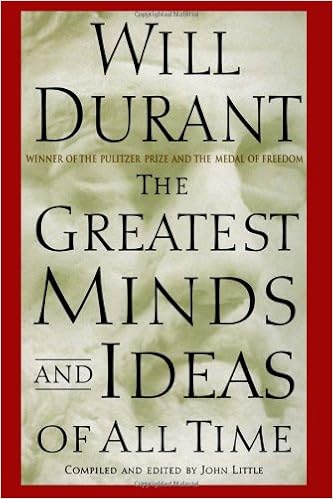In the book, the author lists and briefly describes (in a very peculiar style) what are according to his assessment the peaks of human achievement in terms of thinkers, poets, educational books, human progress and world events.
The book is only a bit over 100 pages long, and therefore the treatment within each of the categories is quite condensed.
Was it good?
To be honest, I must say that based on the title of the book, I expected substantially more. Of the main chapters, in my opinion only the The Ten "Greatest" Thinkers (sic.) really lived up to the title. All the rest was -- again, in my opinion -- somewhat besides the point. For example, I certainly would not include poetry in this kind of a book, and listing a number of dates of death under Twelve Vital Dates in World History was a bit surprising.
Furthermore, I didn't really appreciate the nearly poetry-like writing style of the author -- its distinctive lyrical tone distracted me from the subject matter under discussion.
The main take-away for me?
It's hard to say what would be a take-away here when both the writing style and some of the content choices distracted me from a coherent train of thought that would run throughout the book. Perhaps there is a lesson for me with regard to "how not to write".
Who should read the book?
Well, I can't really recommend the book. Perhaps if one appreciates poetry and lyrical writing, there might be something to enjoy here.
The book on Amazon.com: The Greatest Minds and Ideas of All Time

No comments:
Post a Comment